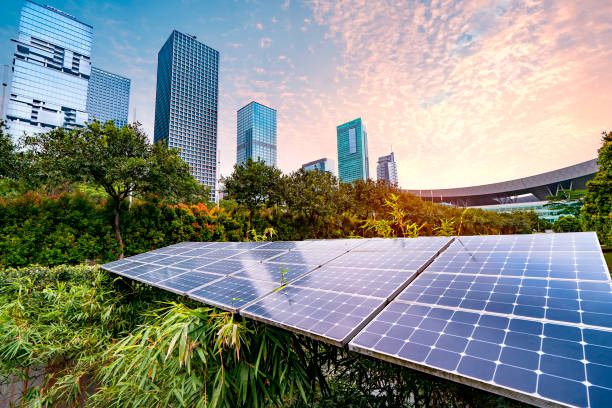Balancing Nature and Business: Propane and Solar Power for Corporate Entities

Creating sustainable businesses in harmony with nature is a delicate balance. We all desire the comforts of modern commerce while preserving the environment that surrounds us. When it comes to energy sources, reliability and environmental responsibility are key considerations for commercial enterprises. In this context, the combination of propane and solar power emerges as a winning partnership.
Propane’s Reliability and Environmental Friendliness
Propane offers a unique blend of reliability and environmental responsibility, making it an excellent companion for businesses seeking to reduce their carbon footprint while ensuring dependable energy sources.
Solar and Wind as Low-Carbon Options
Initiating a renewable energy plan is a logical starting point. Solar and wind generation systems are well-known for their low-carbon footprint. These systems not only reduce environmental impact but can also allow businesses to sell excess power back to local utilities on high-generation days, offering financial incentives.
However, relying solely on electricity may have its drawbacks, especially if the grid you’re connected to primarily sources power from centralized coal-fired plants. Even though these plants may be located far away, the high-carbon fuel they burn contradicts the goal of achieving a low-carbon environment.
Electric generation, in itself, is inherently inefficient. Most centralized generation plants lose about two-thirds of the thermal energy produced in the generation process, resulting in only one-third being converted into electricity. Furthermore, the transmission of electricity over long distances via electrical lines leads to a 5% loss of power due to resistance in the wires.
The Role of Propane for High-Heat Applications
Propane can strategically reduce the load on your electrical system, especially for high-heat applications. These applications, such as industrial heaters, can rapidly drain solar and wind-charged batteries, and even on-grid systems can struggle to keep up with the electricity demands. Propane-powered high-heat appliances are three times more energy-efficient than their electric counterparts.
Environmental Benefits and Reliability
Propane not only delivers performance and reliability but also has minimal environmental impact. Propane storage tanks seamlessly integrate into small outdoor spaces without disturbing the natural habitat, and they can be refilled by technicians without causing damage.
Propane is non-toxic and low-carbon, burning cleanly with minimal emissions of soot, sulfur, and nitrous oxides. In the rare event of a spill, propane vaporizes into the air, leaving the environment clean and healthy.
Propane as Backup Power for Businesses
When the grid goes down or batteries are low, propane shines as a reliable source of backup power. Propane-powered generators ensure business continuity, making them an essential asset for enterprises.
Take, for example, a 35-acre ranch nestled in the Rocky Mountains, miles from the nearest electric utility pole. Instead of costly grid connection, the ranch relies on electricity generated by solar panels and wind turbines, charging batteries that power the electrical system. Propane, stored in a 1,000-gallon tank, fuels backup generators during extended cloudy periods, ensuring the ranch’s uninterrupted operation.
Whether you’re looking to reduce operating costs, ensure reliability, or minimize your environmental footprint, the strategic use of propane can play a vital role in achieving these goals.
By combining the strengths of propane and renewable energy sources like solar power, businesses can attain a sustainable balance between their operational needs and environmental stewardship. This synergy enables commercial enterprises to thrive while preserving the natural beauty and health of their surroundings.










